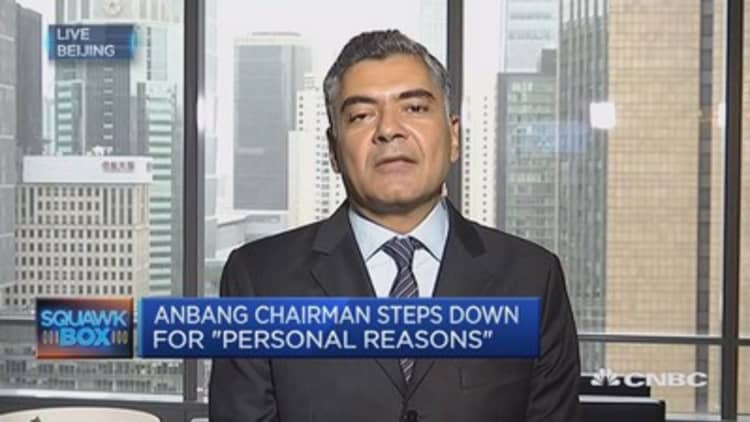
The troubles surrounding Chinese insurer Anbang are part of a "house-cleaning" that was "well overdue," an industry expert said Thursday.
Last week, Anbang — best known for its 2015 purchase of New York's landmark Waldorf Astoria hotel — said its chairman, Wu Xiaohui, was no longer able to fulfill his duties. The brief statement cited unspecified personal reasons for the move, and it came after the China Insurance Regulatory Commission said in April that its head, Xiang Junbo, was being investigated for suspected disciplinary violations.
"This is part of an effort to clean house in the insurance industry. Ever since the chairman of the CIRC got detained, everybody saw this coming," said Sam Radwan, partner and co-founder of Enhance International.
"It's not just Anbang they are looking at; they are probably looking at other companies," he added in an interview with CNBC's "Squawk Box."
Radwan's management consultancy advises the CIRC and Chinese insurers China Life, Sunshine and Taikang.
As part of the concerted effort to clean up the insurance industry, particularly the life insurance business, authorities are sending the message that "you're not in the business of wealth management, you're in the business of providing insurance protection," he said.
The Chinese government had tried to send the same signal in 2016, cracking down on high-yield life insurance products, but "without a whole lot of luck," said Radwan.
In May this year, issues about such products resurfaced when the CIRC suspended Beijing-based Anbang from issuing new products for three months as it singled out one of the insurer's product designs it said "deviates from the fundamentals of insurance."
"They were very concerned about the product that was created by Anbang that appeared to be a protection product, but was really a wealth management product disguised as an insurance product," said Radwan.
Anbang had a high risk appetite, with 20 percent of life insurance assets invested into equities — against 2 percent among peers in the U.S., noted Radwan.
"If you look at their balance sheet, it looks more like a balance sheet of a hedge fund as opposed to a balance sheet of an insurance company," he said.
"It was a very aggressive investment approach that they took with their balance sheet."
Despite its troubles, Anbang is still a "very cash-rich company" and despite short-term revenue risks, there is likely to be little immediate risk from a financial perspective, Radwan said.

